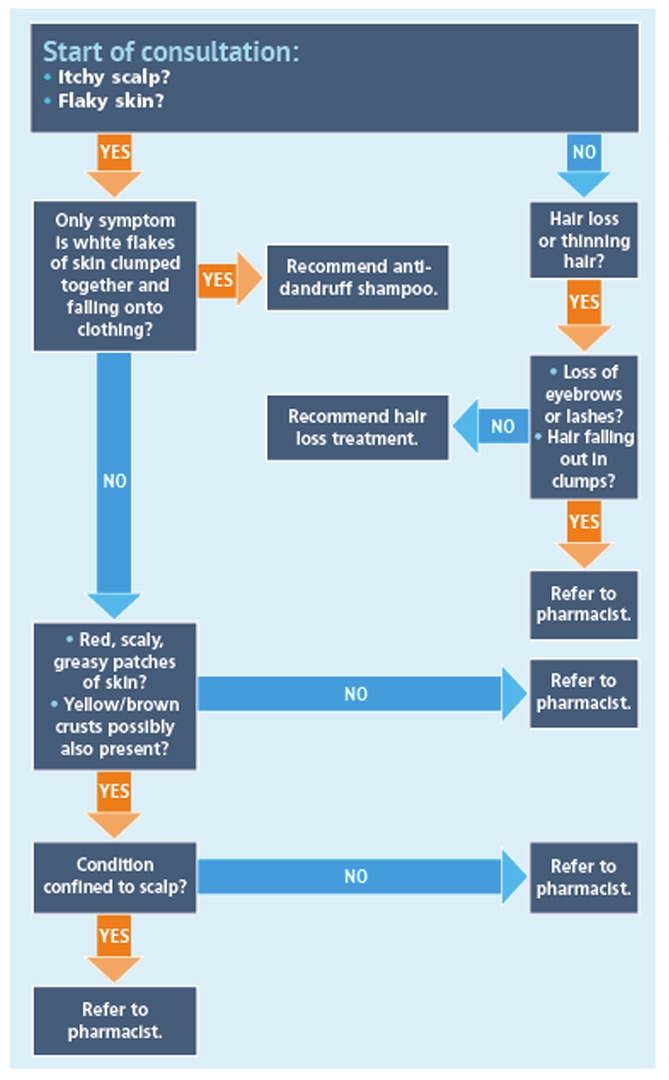In Conditions
Follow this topic
Bookmark
Record learning outcomes
This handy 10-minute clinic is designed to act as a quick reference guide that will help you when advising customers in different category areas. The flowchart will lead you through the decision-making process to help you respond to customer queries. This month, we look at the advice you can offer and the products you can recommend to people suffering from scalp problems such as dandruff, seborrhoeic dermatitis and psoriasis.
At a glance
Spot the difference
- Dandruff is a very common condition caused by a build-up of dead skin cells on the scalp, which can gather in white clumps and fall onto the shoulders. As well as looking unsightly, dandruff can be intensely itchy
- Seborrhoeic dermatitis is a type of skin inflammation that can cause severe dandruff. In more serious cases, patches of red, scaly, greasy skin may also develop. Yellow-brown crusts can form on top of these patches, which may be itchy and slightly raised. These can develop on the scalp, outer ear and eyelids
- Scalp psoriasis causes red patches of skin covered in thick, silvery-white scales. Hair traps the scales and prevents them from being rubbed away, as they would be on other parts of the body.
When you talk to any customer, remember WWHAM
Who is it for?
It may not be the customer who needs the treatment. Not all products are suitable for children.
What are the symptoms?
Some conditions have very similar symptoms, so if you are not sure about the cause of the condition, refer to the pharmacist.
How long have the symptoms been present?
Conditions such as dandruff usually start to improve after a few weeks. However, the symptoms may return if the customer stops the treatment.
Action already taken?
This will help you to establish what products the customer has already used – some people need to try a few different products before finding the one that works best for them.
Medication?
Refer any customer who has an established medical condition or is taking any other medicines.
You don’t have to ask these questions in order, and a customer might give you some of this information without you asking. As long as you get them into the conversation, you should be able to find out the information you need in order to make a recommendation. The golden rule to remember is: if in doubt, refer to the pharmacist. Don’t be embarrassed to ask for their advice as they will have a lot of information about products and symptoms to hand that you may not be aware of.
When to refer to the pharmacist
- If the customer has severe scaling on the scalp that is also affecting other areas of the body
- If you think the customer may have scalp psoriasis
- Any customer who experiences irritation, itching or a burning sensation after using an antifungal shampoo
- Any customer whose scalp appears to be infected.
Self care tips
- Avoid bleaching, colouring or perming the hair
- Try not to scratch the scalp or scrape it when brushing or combing hair
- Massage the scalp gently when washing the hair
- Eat a healthy, well-balanced diet.
Signposting
- The NHS:
- Alopecia UK


